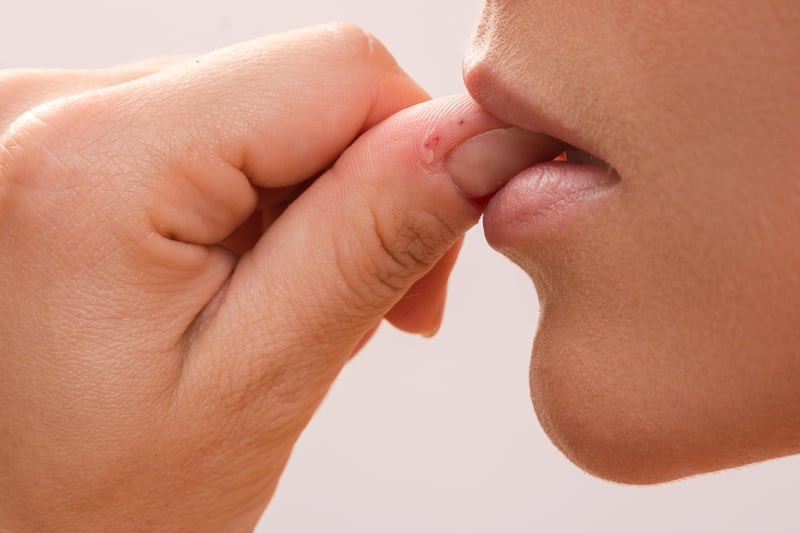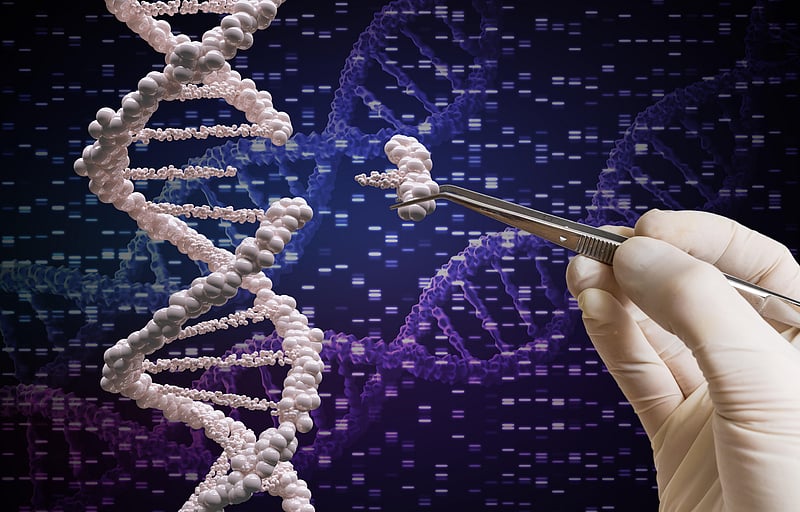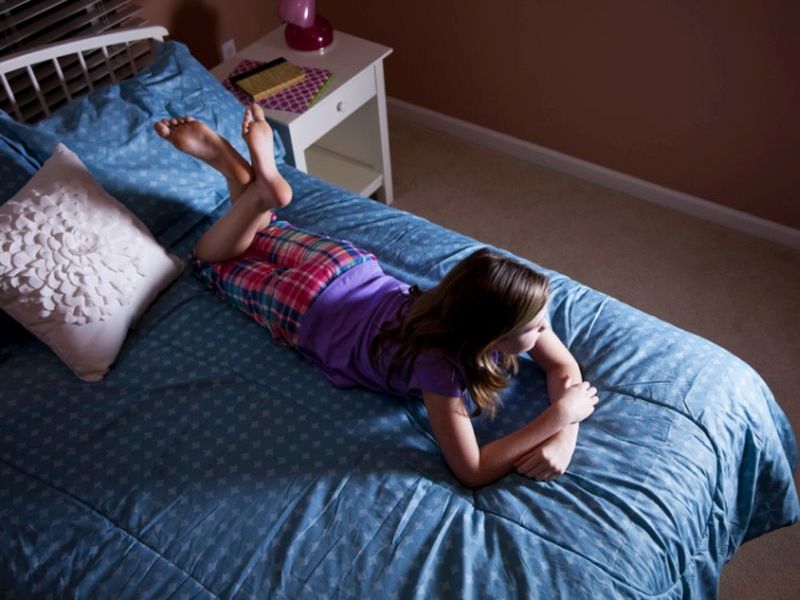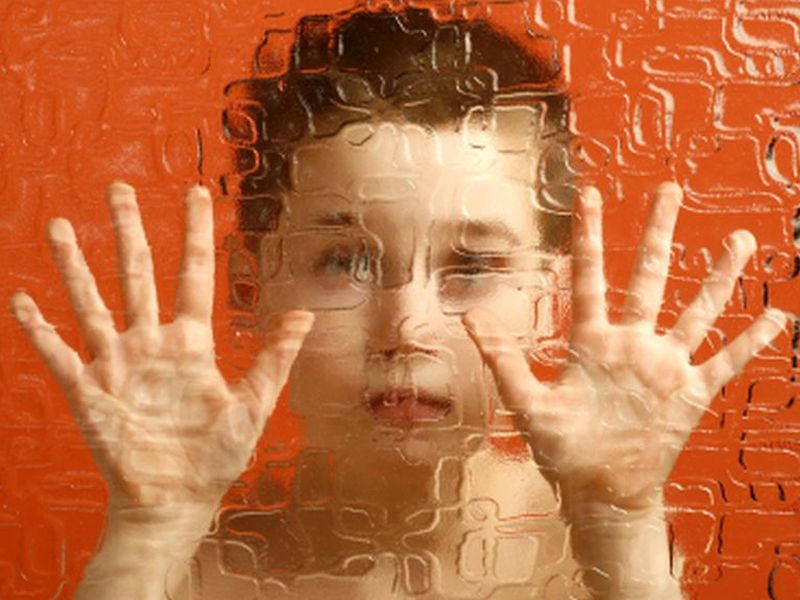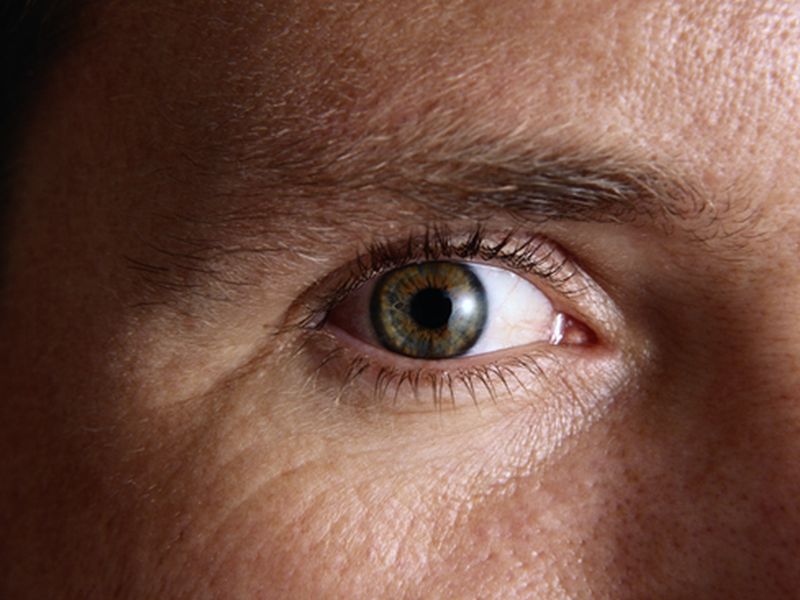Get Healthy!
14 Results for search "Obsessive-Compulsive Disorders".
Health News Results - 14
If you just can't stop biting your nails, picking at your skin or pulling out a hank of hair, especially when you're stressed out, here's something to try that just might work.
Instead of nibbling, picking or pulling, simply touch your skin gently, such as by lightly rubbing the fingertips, palm or back of arm, at least twice a day.
That strategy, called "habit replacement," helped ...
- Cara Murez HealthDay Reporter
- |
- July 20, 2023
- |
- Full Page
California psychiatrist Dr. Carolyn Rodriguez once had a patient with obsessive-compulsive disorder (OCD) who washed his hands so often that he had to wear gloves to cover his cracked and swollen skin.
“People with intrusive thoughts of contamination can do this for hours on end with scalding hot water,” sa...
- Sarah D. Collins HealthDay Reporter
- |
- June 30, 2023
- |
- Full Page
Preteens who spend much of their free time watching online videos or playing video games may have a heightened risk of developing obsessive compulsive disorder (OCD), a new study suggests.
Researchers found that among 9,200 9- and 10-year-olds they assessed, the odds of developing OCD inched up ...
- Amy Norton HealthDay Reporter
- |
- December 22, 2022
- |
- Full Page
When traditional treatments fail to help patients with severe obsessive-compulsive disorder (OCD), an implant that zaps the brain with electrical pulses just might, a new research review shows.
It found that the remedy — known as "deep brain stimulation...
- Alan Mozes HealthDay Reporter
- |
- September 22, 2022
- |
- Full Page
Many people who get a diagnosis for one mental illness may find they have additional psychiatric conditions, and new genetic research offers an explanation why.
A number of mental illnesses share genetic similarities, researchers found. This discovery helps explain why multiple conditions are common among people with psychiatric disorders, the investigators pointed out in a new study.
...- By Robert Preidt HealthDay Reporter
- |
- May 16, 2022
- |
- Full Page
There is no increased risk of mental health problems in teens and young adults who were conceived through in-vitro fertilization (IVF), Swedish researchers report.
Although those born after assisted reproductive techniques did have a slightly higher risk of obsessive-compulsive disorder (OCD), it owed to parental background factors, they said.
Since 1978, more than 9 million childre...
- Robert Preidt
- |
- December 21, 2021
- |
- Full Page
Parents frazzled by their little ones' finicky food choices often sigh in exasperation, thinking: "They'll grow out of it by college."
Maybe not, suggests a new study from Bowling Green State University in Ohio. Some young people continue their picky eating into early adulthood, often restricting their diets to 10 foods or even fewer.
Such a limited diet can mean they're not getting...
- Cara Murez HealthDay Reporter
- |
- October 7, 2021
- |
- Full Page
Adults with obsessive-compulsive disorder, a common mental health condition known as OCD, may have more than triple the risk of having a stroke, according to a new report from Taiwanese researchers.
As to why, the study authors aren't sure.
The investigators speculate that other mental health problems suffered by OCD patients - "comorbidities" such as schizophrenia, bipolar disorde...
- Steven Reinberg HealthDay Reporter
- |
- May 27, 2021
- |
- Full Page
Obsessive-compulsive disorder (OCD) is more common among new mothers than previously thought, and it's often driven by worries about things that may happen to their newborns, a new study finds.
Many new moms may keep the issue hidden, the Canadian researchers said.
"When mothers have these kinds of thoughts they might think, 'There's something wrong with me and I can't tell anyone b...
- Robert Preidt
- |
- March 26, 2021
- |
- Full Page
Noninvasive electrical stimulation of the brain, fine-tuned to specific "circuitry" gone awry, might help ease obsessive-compulsive behaviors, an early study hints.
Researchers found that the brain stimulation, delivered over five days, reduced obsessive-compulsive tendencies for three months, though in people who did not have full-blown obsessive-compulsive disorder (OCD).
It's too...
- Amy Norton HealthDay Reporter
- |
- January 19, 2021
- |
- Full Page
Researchers may have gained new insights into a mystifying condition that causes children's behavior to change so severely and abruptly, it can be like they woke up as a different person.
The condition is known as pediatric acute-onset neuropsychiatric syndrome, or PANS. It is diagnosed when a child has a dramatic -- sometimes overnight -- onset of psychiatric and neurological symptom...
- Amy Norton
- |
- May 12, 2020
- |
- Full Page
The commonly used antidepressant Prozac doesn't appear to help reduce obsessive-compulsive behavior in children and teens with autism, new research suggests.
The study randomly compared use of the drug to a placebo over 16 weeks. In the end, the researchers saw no meaningful clinical benefits from the drug.
"We found that there was little evidence for the effectiveness of ...
- Serena Gordon
- |
- October 22, 2019
- |
- Full Page
When eating healthy becomes an around-the-clock obsession, it could be a sign of trouble.
An extreme preoccupation with clean eating is an eating order called orthorexia nervosa. Though less well-known than anorexia nervosa or bulimia -- and not as well-documented -- a new study review says orthorexia can also have serious emotional and physical consequences.
"Orthorexia is rea...
- Cara Roberts Murez
- |
- June 14, 2019
- |
- Full Page
Tourette syndrome can be a nerve-wracking condition, but there are effective treatments for sufferers, a new American Academy of Neurology guideline says.
Tourette is a neurodevelopmental disorder that begins in childhood and causes involuntary vocalizations and repetitive movements known as tics.
Accurate diagnosis, ongoing medical assessment of tic severity, and treatments...
- Robert Preidt
- |
- May 8, 2019
- |
- Full Page

